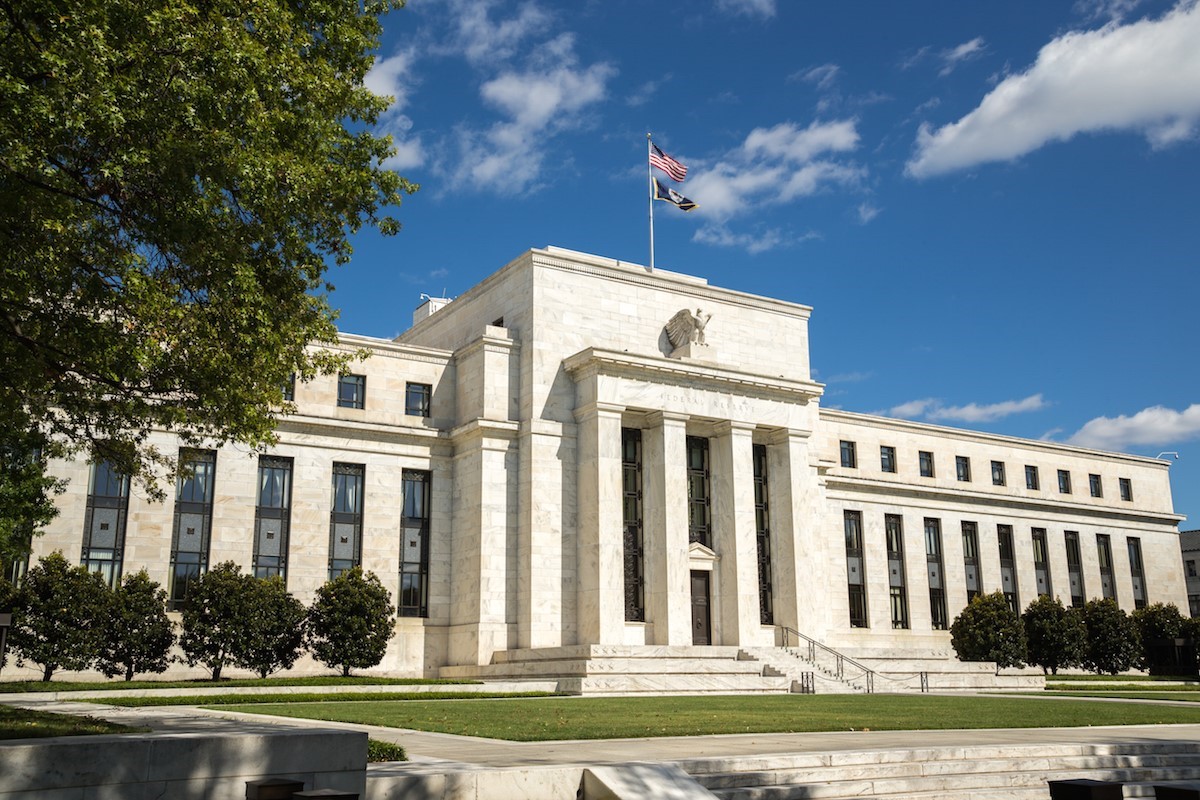3 things the new Fed chief taught us this week
Federal Reserve Chairman Jerome Powell made an eventful debut on the public stage this week in a litany of hearings and speeches demonstrating glowing optimism about the state of the economy. He said Fed officials will take another look at rate hike projections, and that recent market volatility won't deter any rate increases.
Powell, who took over as the Fed's leader after former Chairwoman Janet Yellen left the post last month, made his first appearance before the House Financial Services Committee on Tuesday. His testimony included a bullish view of the economy, sending signals to investors that the pace of rising interest rates might grow more aggressive. On Thursday, he gave a repeat performance to the Senate Banking Committee but added he doesn't detect signs of the economy growing too quickly.
Here are three things we learned from Powell's remarks this week.
1) Rate hikes are happening
As of now, the plan hasn't changed: we can expect three interest rate hikes this year. Powell told lawmakers that recent stock market tumult didn't stem the Fed's plans to raise interest rates to prevent the economy from overheating.
"My personal outlook for the economy has strengthened since December," Powell said. "I would expect the next two years, on the current path, to be good years for the economy."
Why? Employers continue to add jobs and unemployment remains at a 17-year low. Wages will increase (eventually). And after a lengthy period of weakness, inflation is starting to accelerate.

In addressing questions Tuesday about whether the central bank would raise interest rates four times this year instead of three, Powell said he didn't want to "prejudge" any new set of projections or suggest that that the Fed would adjust its forecast.
Investors took his remarks as hints that a fourth rate hike is likely. The resulting market anxiety caused the U.S. dollar and bond yields to rise as stocks fell. The Wall Street Journal reported that futures contracts connected to the Fed's rate policies showed a 33 percent probability that the central bank would pencil in a fourth rate hike.
2) The Fed feels good about inflation
Like interest rates, inflation has taken center stage in any discourse on the Fed as of late. As we've witnessed lately, the measure of the rise in goods and services has the potential to incite fear in investors but also raise hopes in markets.
Despite the uncertainty, Powell believes inflation is on track to achieve the Fed's 2 percent target. "We've seen some data that will, in my case, add some confidence to my view that inflation is moving up to target," he said.
3) Powell's no political pushover
When news hit that President Donald Trump would pick Powell to succeed Yellen, some questioned whether the former Fed governor had the mettle to go toe-to-toe with lawmakers asking pointed questions.
This week proved he does.

As a story in Politico noted, Powell tactfully avoided the political maneuvering of top Democrats who tried to draw him into a debate about legislation to peel back the Dodd-Frank bill and criticism of higher deficits created by tax reform and increased federal spending. He was also careful not to credit increased economic performance to the GOP tax cuts.
"He has incredible political skills and I mean that as a compliment," Glenn Hubbard, dean of the Columbia University business school and a close friend of Powell's told Politico on its podcast. "Given what the Fed is doing in navigating difficult economic and financial decisions in a very tough political climate, Chairman Powell is exactly the right person."
Stocks drop after tariffs news
In early trading Friday, U.S. stocks continued to fall as major indices fell by 1 percent or more. Traders braced themselves for another round of losses following news that the U.S. would impose tariffs of 25 percent on steel and 10 percent on aluminum imports as early as next week. The Dow Jones fell 420 Thursday on the heels of President Donald Trump's announcement that the U.S. would impose tariffs on steel and aluminum imports.
The news about tariffs drew harsh rebuke from foreign leaders, some of whom threatened retaliation. The American stock market plummeted as investors worried about a possible trade war between the U.S. and its foreign trade partners, and global stocks tanked.
Trump on Friday defended his decision, tweeting that trade wars are "good, and easy to win" when a country such as the U.S. is losing billions of dollars on trade with foreign nations. He insisted that the American steel industry is "in bad shape" and implied the tariffs move will protect the U.S.
Analysts worried that Trump's firm stance may repulse foreign allies essential for U.S. economic growth and national security. Some lawmakers predicted trading partners may place counter-tariffs on U.S. products, increasing costs of doing business worldwide. House Speaker Paul Ryan asked Trump to reconsider so that the U.S. might avoid unintended consequences.
For now, all this disruption in the equity markets has been a boon for rates. The 10 year Treasury note has rallied on news of a four-year high Feb. 21, when yield reached 2.96%. By Friday, the yield fell 2.81%, taking mortgage rates lower with it. This may be short-lived as things settle down and the market's focus moves back to the economy and inflation. Expect lots of volatility.
In other mortgage news…
- Pending home sales dipped to their lowest level in three years, falling 4.7 percent in January.
- S. home prices surged 6.3 percent in the final quarter of 2017. Home prices rose in all metropolitan areas examined, and the only state to see a decrease in prices was Mississippi. Seattle saw the highest increase.
- Since 2000, homeownership rates have fallen in 90 out of the 100 largest metros in the U.S., according to a new report from Trulia. Some areas did see homeownership gains, such as Atlanta and cities in the Northeast.
- The Bureau of Economic Analysis revised its fourth quarter gross domestic product estimate to 2.5 percent, down from the previous estimate of 2.6 percent.
- Mortgage rates increased for an eighth consecutive week.


